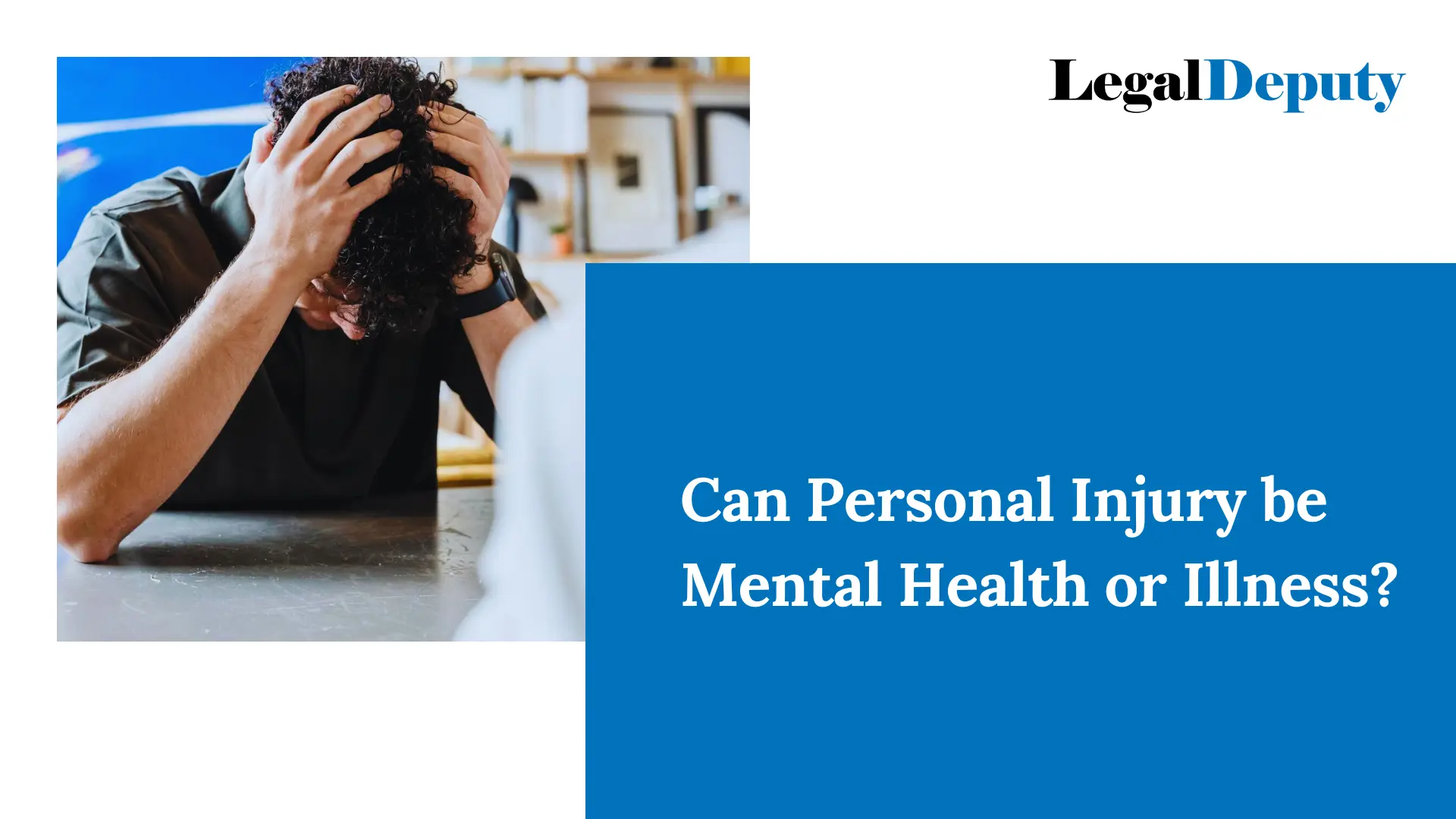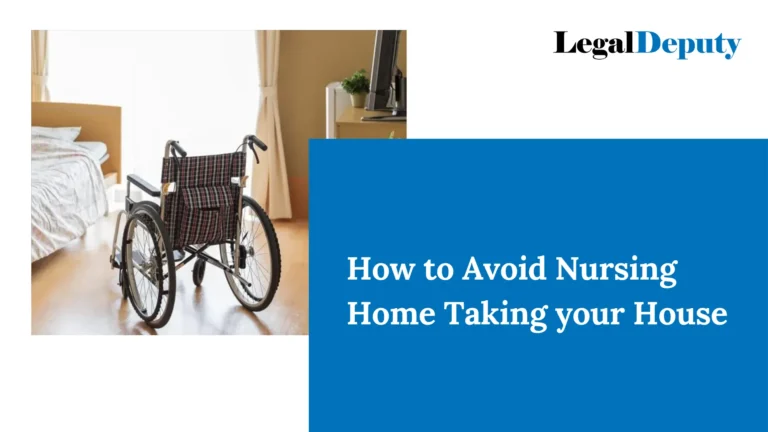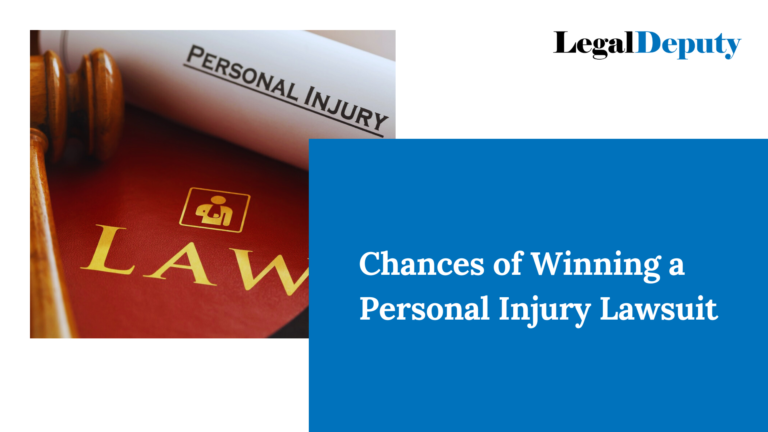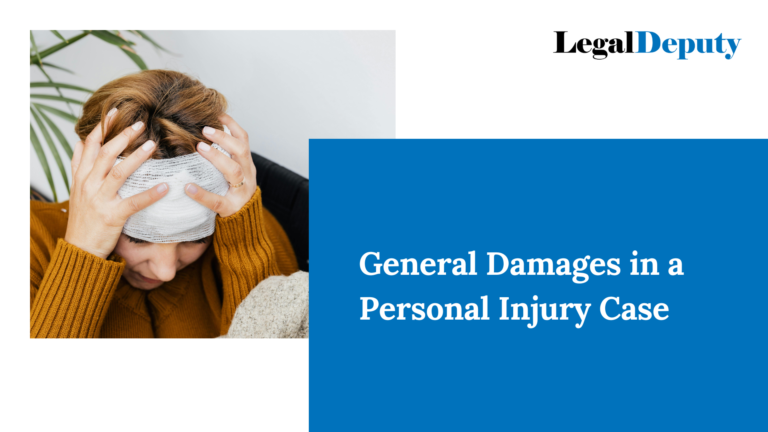Can Personal Injury Be Mental Health or Illness? Ultimate Guide
When people think of personal injury, they often envision physical injuries resulting from accidents or mishaps. However, personal injury can also encompass mental health issues or illnesses. So, can personal injury be mental health or illness? The simple answer is YES. Mental health conditions, including emotional distress, anxiety, depression, and PTSD, can qualify as personal injuries if they result from another party’s negligence or intentional actions.
In this blog, we will explore how mental health issues can be considered personal injuries under the law. We’ll discuss the types of mental health conditions that qualify, examine legal precedents and case studies from the USA, and provide guidance on identifying symptoms and filing a claim. By understanding the legal recognition of mental health as a form of personal injury, you can better navigate your rights and seek the justice and compensation you deserve.
Understanding Personal Injury
Personal injury law allows individuals to seek compensation for harm suffered due to another party’s negligence or intentional actions. Traditionally, this includes physical injuries, but it can also cover non-physical harm like emotional distress, anxiety, and other mental health conditions.
Types of Mental Health Issues that Qualify
Not all mental health conditions qualify as personal injuries. Common examples that might be considered include:
- Post-Traumatic Stress Disorder (PTSD): PTSD often results from witnessing or experiencing a traumatic event such as a car accident, assault, or natural disaster. Symptoms include flashbacks, severe anxiety, and uncontrollable thoughts about the event. For instance, a person involved in a severe car accident might develop PTSD, experiencing panic attacks whenever they attempt to drive again.
- Depression: This can be triggered by specific incidents such as workplace harassment, significant accidents, or loss of a loved one. Symptoms include persistent sadness, loss of interest in activities, and fatigue. A person who has been harassed at work may develop clinical depression, impacting their ability to function daily.
- Anxiety Disorders: These include generalized anxiety disorder, panic disorder, and social anxiety, especially when they stem from stressful or traumatic situations. Symptoms can range from excessive worry and restlessness to physical symptoms like a racing heart. A victim of a home invasion might develop severe anxiety, constantly feeling unsafe even in familiar environments.
- Emotional Distress: Severe emotional turmoil caused by an incident, even if it doesn’t fit into a specific psychiatric diagnosis. Symptoms might include emotional numbness, irritability, and severe mood swings. For example, a person who witnesses a violent crime might experience severe emotional distress, impacting their ability to engage in normal daily activities.
Want a Free Consultation?
Examples of Mental Health Personal Injury Cases

- Doe v. Roe: In this case, the plaintiff, Jane Doe, successfully claimed for PTSD after witnessing a traumatic event. Jane was at a public event when a violent incident occurred, leading to severe emotional and psychological trauma. With the help of expert testimony from mental health professionals, she was able to prove the direct impact of the event on her mental health, resulting in a substantial settlement.
- Smith v. XYZ Corp: John Smith worked for XYZ Corp and experienced severe anxiety and depression due to ongoing workplace bullying. Despite reporting the issue, the company failed to take appropriate action, leading to a decline in John’s mental health. The court recognized the company’s negligence in providing a safe work environment, and John was awarded compensation for his mental health treatment and lost wages.
- Brown v. Healthcare Provider: Mary Brown developed severe depression and anxiety after a botched medical procedure. The emotional distress from the physical pain and medical negligence significantly impacted her quality of life. The court acknowledged the mental anguish caused by the healthcare provider’s actions, resulting in a favorable judgment for Mary.
How to Identify Mental Health Injuries
To support a personal injury claim for mental health issues, it’s crucial to have a proper diagnosis from a licensed mental health professional. Symptoms might include:
- Persistent Sadness or Depression: Feelings of hopelessness, loss of interest in activities once enjoyed, and changes in appetite or sleep patterns.
- Severe Anxiety or Fear: Excessive worry, panic attacks, restlessness, and physical symptoms like sweating or trembling.
- Flashbacks or Nightmares: Reliving the traumatic event, often accompanied by intense emotional or physical reactions.
- Irritability or Emotional Numbness: Uncharacteristic irritability, anger, or complete emotional withdrawal and detachment from others.
- Physical Symptoms: Chronic pain, headaches, or gastrointestinal issues without a clear physical cause, often linked to emotional distress.
A comprehensive evaluation by a psychiatrist, psychologist, or licensed therapist can provide the necessary documentation to support a personal injury claim for mental health.
Steps to Take for a Mental Health-Related Personal Injury Claim
- Seek Medical Help: Obtain a diagnosis and treatment plan from a mental health professional. This is crucial not only for your well-being but also to provide documented evidence of your condition.
- Document Everything: Keep detailed records of symptoms, treatments, and how the mental health condition has impacted your life. This includes maintaining a diary of your daily emotional state, collecting medical records, and obtaining statements from family, friends, or colleagues who have observed changes in your behavior.
- Consult a Lawyer: Find a personal injury lawyer experienced in mental health claims. They can guide you through the legal process, help gather necessary evidence, and build a strong case on your behalf.
- File the Claim: Your lawyer will help you file the necessary paperwork and represent you throughout the process. This involves submitting all relevant documentation, negotiating with insurance companies, and, if necessary, representing you in court.
- Prepare for Legal Proceedings: Be ready to provide testimony and undergo evaluations by court-appointed mental health professionals if required. Your lawyer will prepare you for what to expect during this process.
Conclusion
Personal injury isn’t limited to physical harm. Mental health issues, when caused by another’s negligence or malicious actions, can also be grounds for a personal injury claim. Recognizing the legitimacy of mental health injuries is crucial for comprehensive justice.
Mental health conditions like PTSD, depression, anxiety, and severe emotional distress can be just as debilitating as physical injuries, impacting work, relationships, and daily activities. If you believe you have a mental health-related personal injury, seek medical attention, document your condition, and consult with a knowledgeable personal injury lawyer.
Pursuing a claim can help you obtain the compensation needed for treatment and recovery while holding responsible parties accountable. Support from organizations like the APA and NAMI, and legal aid services, can provide valuable assistance. Remember, your mental health is as important as your physical health, and you deserve justice and support for psychological injuries.
Want a Free Consultation?
FAQ Section
Can I claim personal injury for stress?
Yes, if the stress is severe, diagnosable, and caused by another party’s actions, it may qualify as a personal injury.
How do I prove my mental health injury in court?
Medical records, expert testimony from mental health professionals, and personal documentation of symptoms can help prove your case.
What compensation can I receive for a mental health personal injury claim?
Compensation may cover medical expenses, lost wages, therapy costs, and pain and suffering.
How long do I have to file a mental health-related personal injury claim?
This varies by state, but typically you have a few years from the date of the incident to file a claim.
Can emotional distress be considered a personal injury?
Yes, emotional distress caused by another party’s actions can be grounds for a personal injury claim.
What kind of evidence is needed to support a mental health personal injury claim?
Evidence includes medical records, mental health professional evaluations, documentation of symptoms and their impact on daily life, and testimonies from witnesses.
Related Blogs:
7 Reasons Your Personal Injury Case May Go To Trial
What Happens After Deposition in a Personal Injury Case
Disclaimer:
The information provided in this blog, “Can Personal Injury Be Mental Health or Illness?”, is intended for general informational purposes only and does not constitute legal advice. While we strive to provide accurate and up-to-date information, the content of this blog may not reflect the most current legal developments or interpretations.
Readers should not act or refrain from acting based on the information contained herein without seeking appropriate legal or other professional advice on the specific facts and circumstances at issue from a licensed attorney in the relevant jurisdiction. This blog is not intended to create, and receipt of it does not constitute, an attorney-client relationship between the reader and the author or the author’s affiliated organization.
All liability with respect to actions taken or not taken based on the contents of this blog is expressly disclaimed. The information is provided “as is”; no representations are made that the content is error-free.
For specific legal advice regarding your personal injury case or any other legal matters, please consult with a qualified legal professional.







